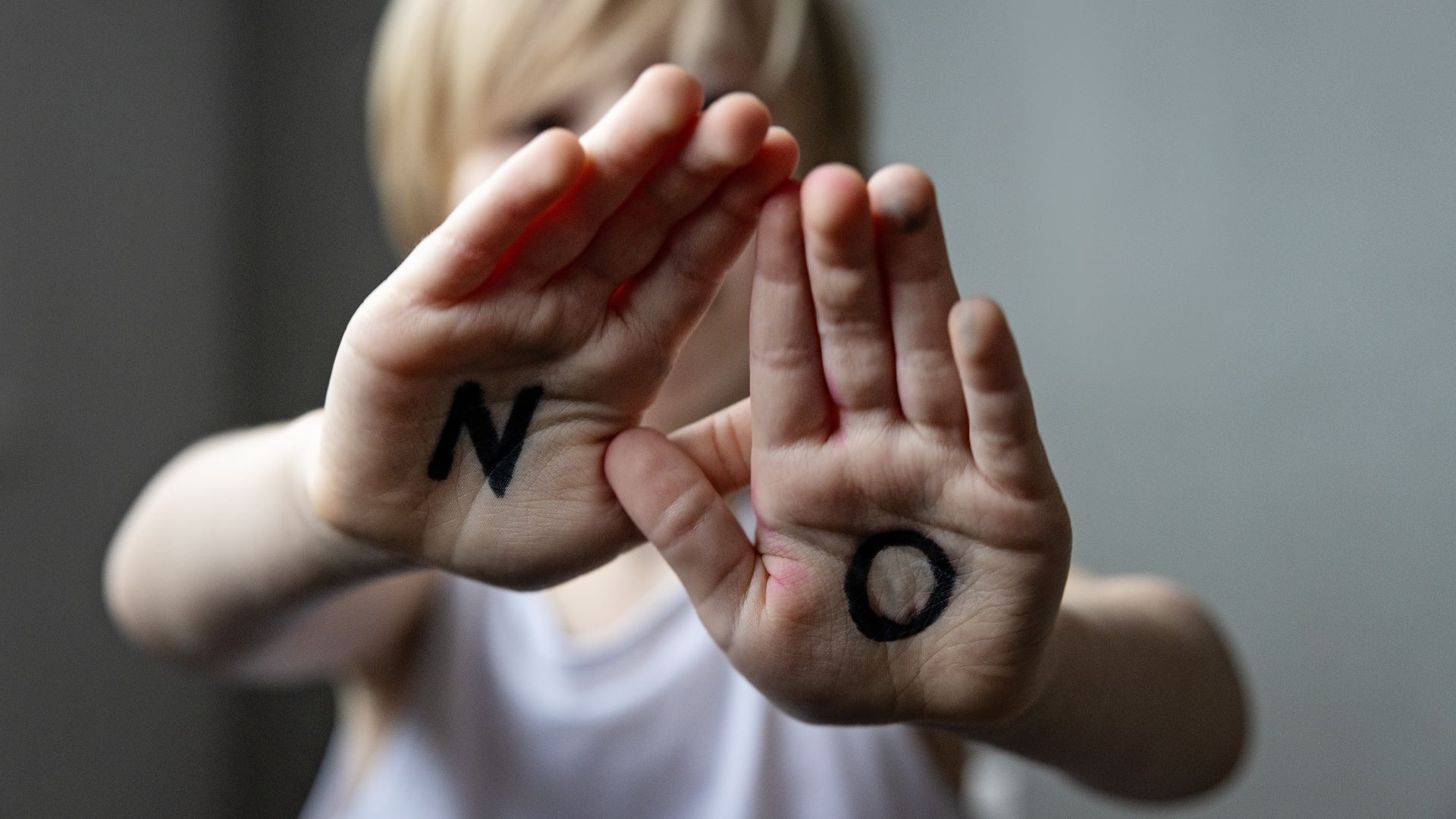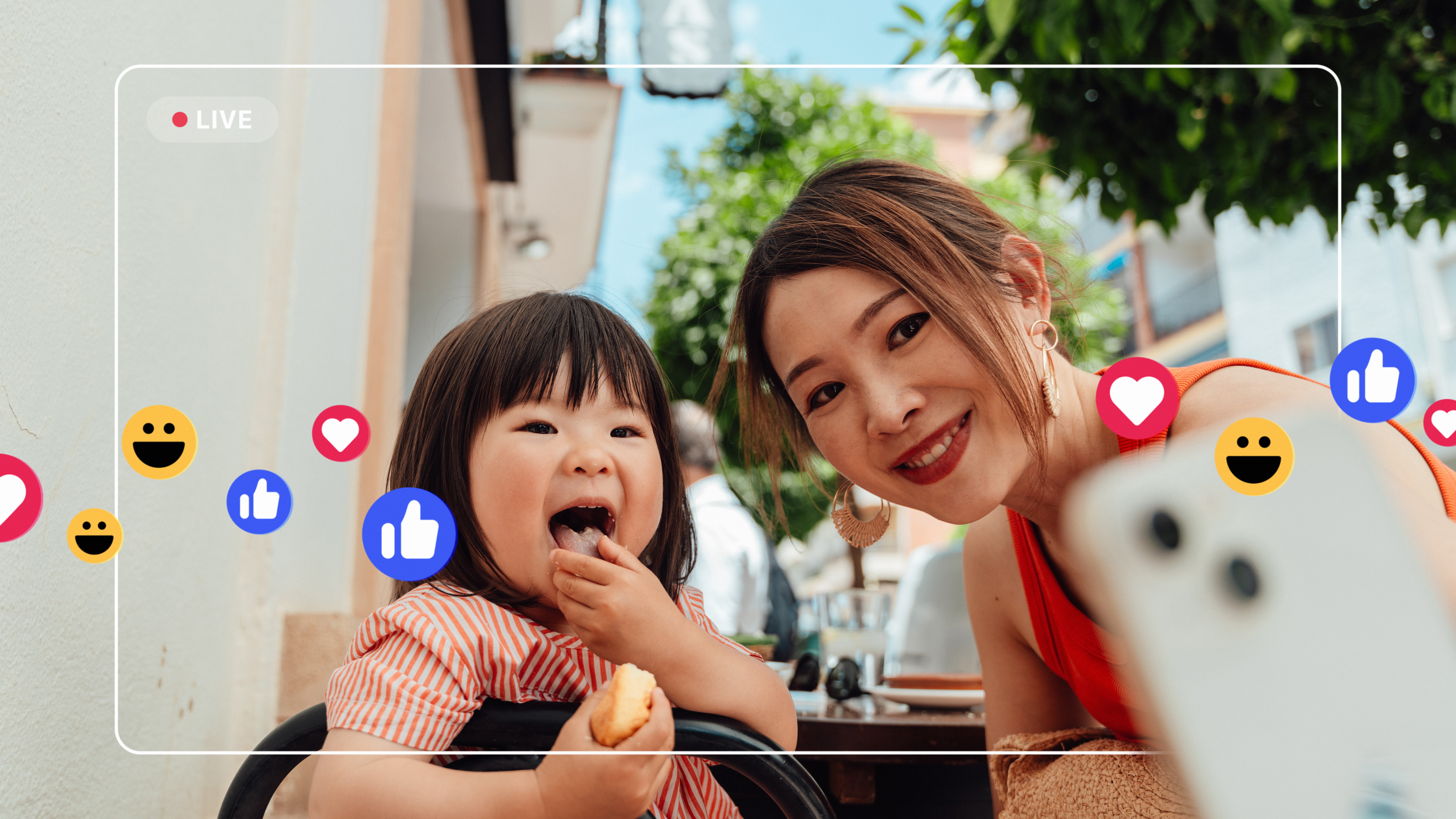Sharenting: the online parenting trend kids never asked for
Spoiler alert: it isn't cute, but dangerous

Sign up for breaking news, reviews, opinion, top tech deals, and more.
You are now subscribed
Your newsletter sign-up was successful
Take a quick scroll through Instagram, Facebook, or TikTok and you'll be bombarded by kids' photos and videos. Posts of influencers and bloggers stand right those of young parents, families, and friends proudly sharing children's achievements—all fueled by likes and views. Let's face it, most of us have been guilty of some sort of sharenting on social media at some point.
Experts have found that about 81% of children living in Western countries have "some sort of online presence" before 2 years old. With sharing often beginning during pregnancy, kids are born "digitally even before [their] natural birth." Snaps of children's lives are frozen in a giant digital album, on the internet, for anyone to access.
Social media users violate children's privacy often in good faith, without understanding the possible implications for their well-being. Nonetheless, experts warn that sharenting—a portmanteau of share and parenting referencing the practice of oversharing children's data online—exposes youngsters to a long list of security and privacy risks. Everything for a digital identity they never asked for.
What is sharenting?
In her book "Sharenthood: Why We Should Think Before We Talk About Our Kids Online," Leah Plunkett says that sharenting occurs every time adults share private details about a child via a digital device.
While blogs and social media platforms are the most common channels, sharenting also happens via fertility apps, baby cams, Amazon wish lists, educational apps, and photos uploaded on a cloud storage server. For the sake of this article, I'm focusing on the most widespread and invasive of these: social media posts.

Plunkett believes that adults "sharent" because digital platforms "make it very easy to do and even encourage it." New parents share personal details to combat loneliness. Teachers might upload children's pictures to celebrate their work. Other accounts treat the practice as a business—and it's a profitable one that the law is now beginning to regulate.
However, digital child labor is only one facet of the problem. No matter the number of followers or interactions you have, children most likely never consent to their image being shared. Even worse, having their life broadcasted on the internet does not come without consequences.
Sign up for breaking news, reviews, opinion, top tech deals, and more.
"This approach to parenting and other caretaking subtly but fundamentally transforms childhood and adolescence from a space of play—a zone of exploration of self and world—to a space of surveillance, which has far-reaching, sometimes life-altering, implications," wrote Plunkett.
A privacy problem
Online privacy is a major concern nowadays. The use of security software like the best VPN services is on the rise. More parents use parental controls when their kids use a digital device. Yet, too many people are willing to give up a piece of their privacy for gratification on social media—and sharenting doubles the dangers.
You've no doubt heard of identity theft, and you might even have been affected by it yourself. While phishing and other more complex cyber-attacks can be involved in the process, extracting sensitive information directly from social media remains an effective and easy tactic for ID fraudsters. And, unfortunately, kids are increasingly becoming a target.

Digital kidnapping refers to the theft of photos of a minor published online posing as himself or his parents. Digital kidnappers may assume the identity of a parent, making people believe they are the father or mother of the child. In some cases, they can use their fake digital identity to contact other children.
According to a Carnegie Mellon CyLab study conducted in 2011, child identity theft is 51 times more common than adult identity theft. Plunkett explains that this is because a kid is like a "clean slate with no credit history."
Metadata attached to children's photos and videos can also put them at risk of invasive profiling and other cyberattacks later in life.
Adults often share highly confidential information within their happy-moment posts, too. This exposes them and their families to real physical danger, especially putting children at risk of grooming and stalking.
There's also a very important element to consider: once you post an image online, you lose your exclusive ownership. Other users can do anything they want with it—a fertile ground for child sexual abuse.
As a recent New York Times investigation unveiled, children's photos and videos often draw men sexually attracted to them. Australian researchers also found that about half of the material on pedophile sites appears to be sourced directly from social media. The advent of easy-to-use AI-powered tools is making it even easier to transform an innocent image into over-sexualized deepfake content.
Unwanted digital identities
This invasion of children's privacy doesn't just lead to invasive commercial practices or illegal conduct. Sharenting can also have a psychological impact on kids as they grow up.
"Each of us decides what to share and how to represent ourselves on social media. Kids are denied this choice," said Serena Mazzini (full video in Italian), a social media strategist who has long advocated against the risk of sharenting in Italy.
She explained how Generation Alpha (kids born between 2010 and 2025) is, in fact, the first generation that will have to come to terms with a publicly accessible digital library of their childhood once they become adults.
Kids are increasingly born "digitally even before natural birth."
A 2019 Microsoft study found that 42% of teenagers across 25 countries stated that they have a problem with their parents posting their images on social media. That's because kids reaching 13 or 14 (the legal age required to have a social media account) are eager to carve out their own digital presence.
"Yet, the contents published by their parents often do not reflect the image they would like to give of themselves," said Mazzini. "They feel caged in a representation that they did not choose."
This could make kids more likely to endure cyberbullying during their teen years and impact their ability to build their own identity later in life, according to Plunkett.
How to sharent safely
Legislators are now looking at how to regulate the issue. Italy is the last of too few countries considering a law against sharenting, while the State of Illinois in the US and France have recently enforced new rules. Legislative efforts are still a rarity, though, and many argue that the reach of such measures is limited anyway.
Take for example the so-called right for "digital oblivion," a similar concept to the GDPR's right to be forgotten. Both Italian and French laws include the possibility for the kids to ask for their digital information to be deleted from the web once they are old enough to do so. However, it's arguably impossible to really erase something from the internet.
For some people giving up on sharenting might be not a possibility either. According to Plunkett, this practice have also positive outcomes such as building supportive connections and educational advantages. What we all can do is broadcast a child's image in a more conscious way.
Posting about your kids on social media? @UFlaw’s @sgsteinberg, a world expert on “sharenting,” offers these tips for their safety and wellbeing. 🧵(1/9) pic.twitter.com/hI6K3aonDRSeptember 1, 2023
Director of the Center on Children and Families in the University of Florida's law department, Professor Stacey Steinberg recommends referring to the kid with a nickname or name initials to mitigate the risks of ID theft.
She recommends that parents refrain from posting nudity, too, no matter how innocent the pictures could look. She believes that kids should also be involved in the decisions whenever possible.
Mindful sharenting practices also include photographing the child from a distance or looking away from the camera, focusing on a body part, or covering their face with an emoticon to make them less recognizable. Steinberg also suggests reviewing the privacy settings of old posts to make sure only friends can see them.
Most importantly, perhaps, don't rush on your smartphone to post right after the snap. "When our kids see us step out of the moment to share a picture instead of waiting, they take note," Steinberg said.

Chiara is a multimedia journalist committed to covering stories to help promote the rights and denounce the abuses of the digital side of life – wherever cybersecurity, markets, and politics tangle up. She believes an open, uncensored, and private internet is a basic human need and wants to use her knowledge of VPNs to help readers take back control. She writes news, interviews, and analysis on data privacy, online censorship, digital rights, tech policies, and security software, with a special focus on VPNs, for TechRadar and TechRadar Pro. Got a story, tip-off, or something tech-interesting to say? Reach out to chiara.castro@futurenet.com